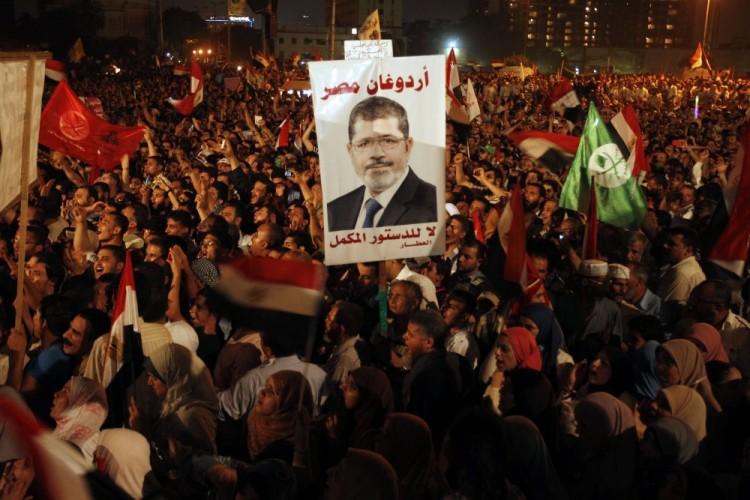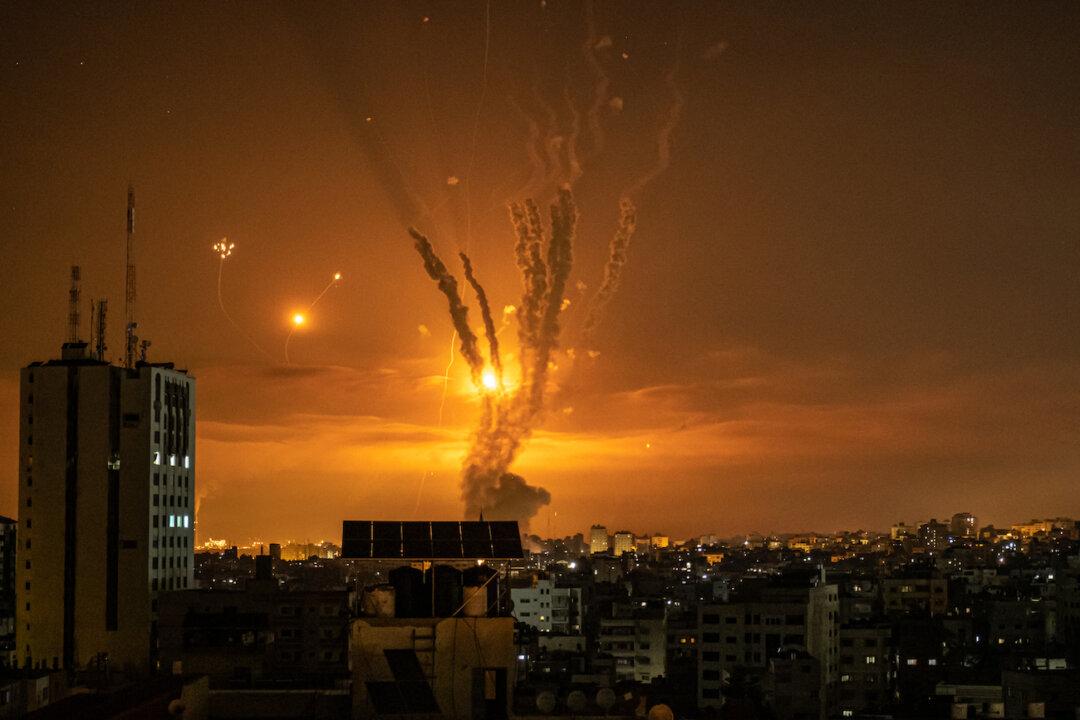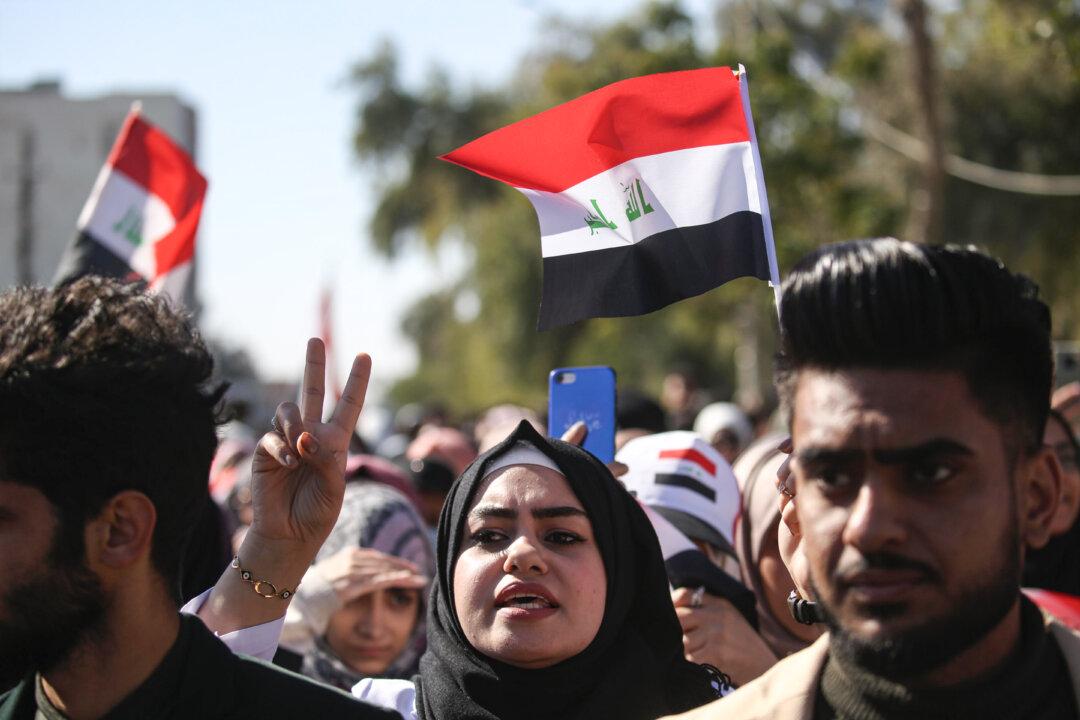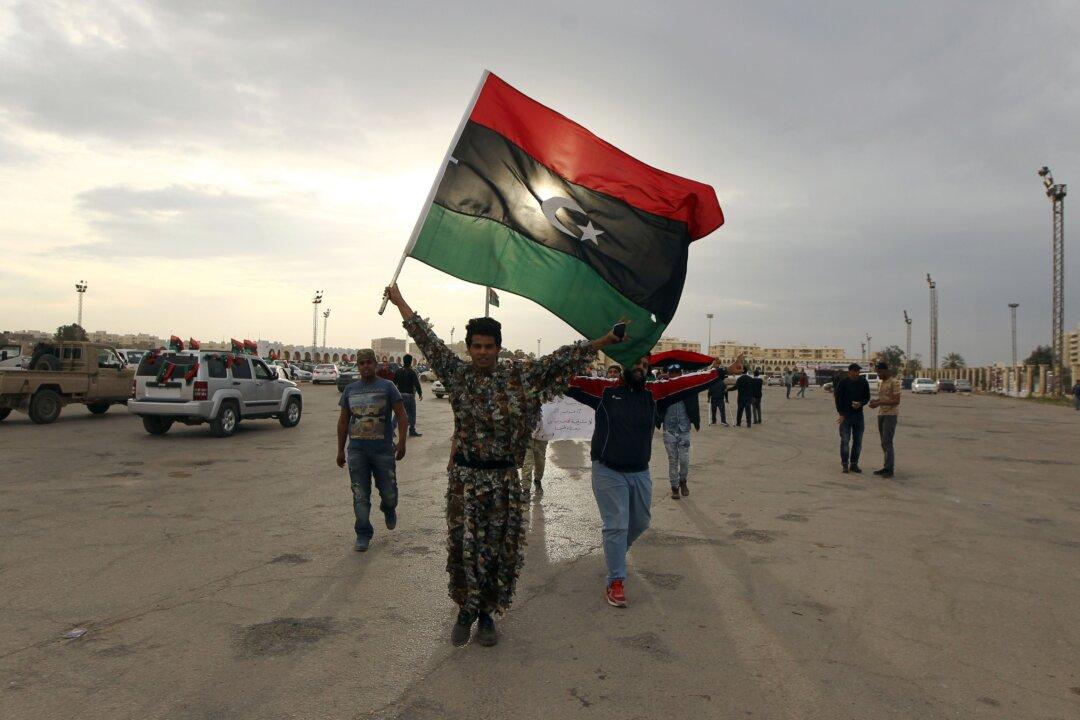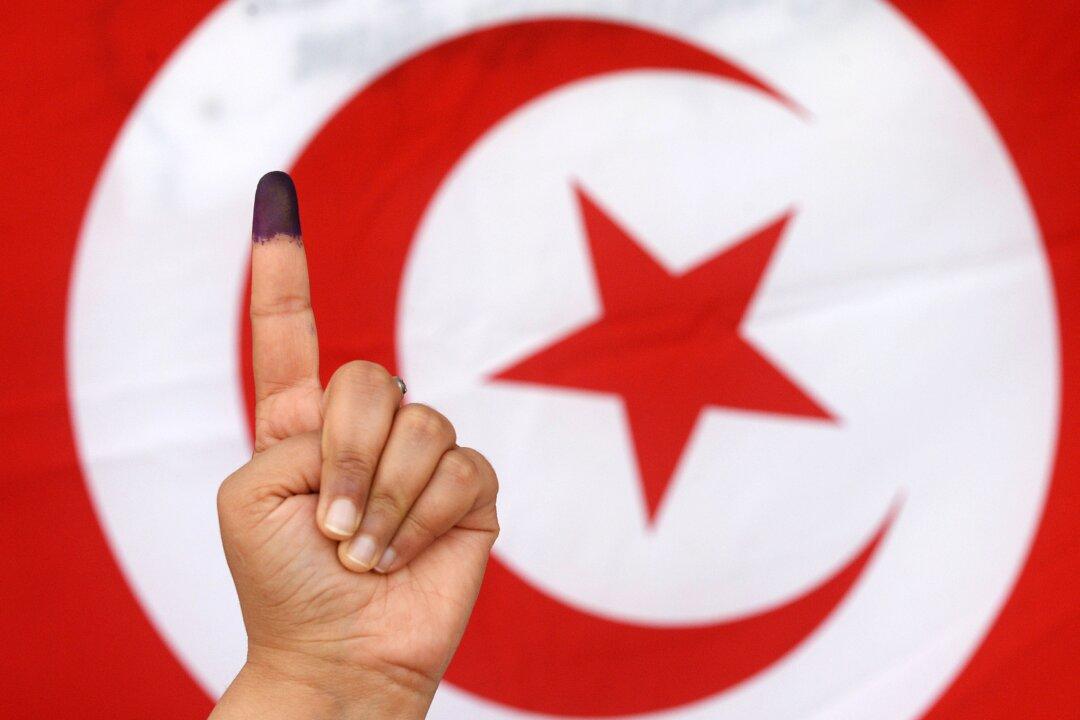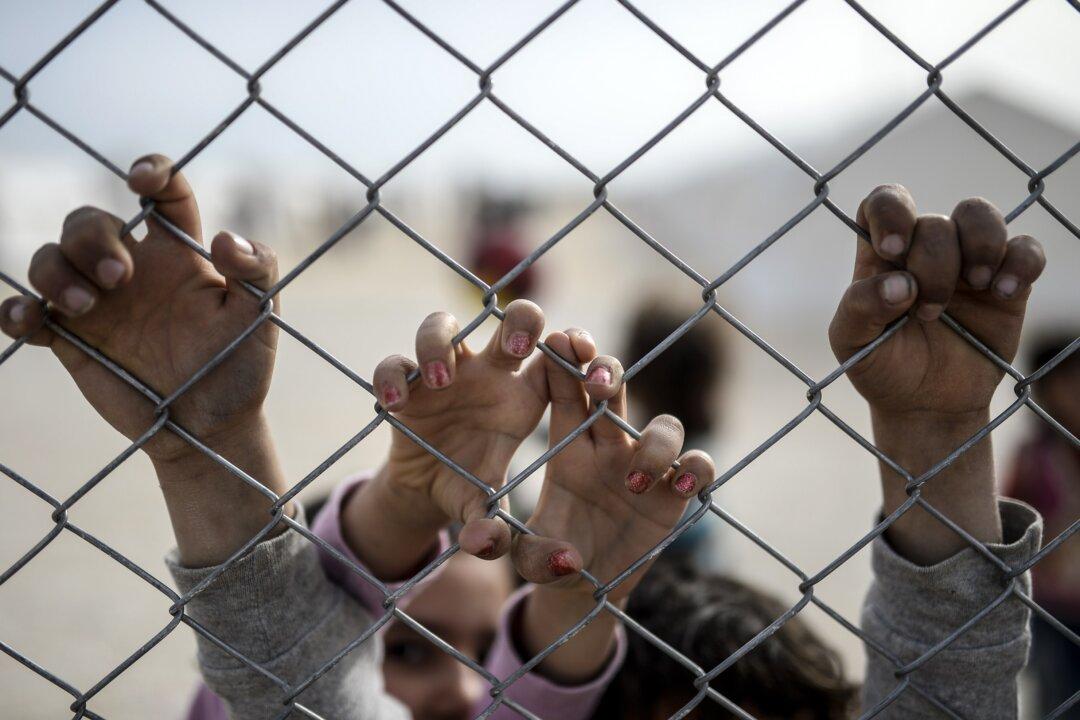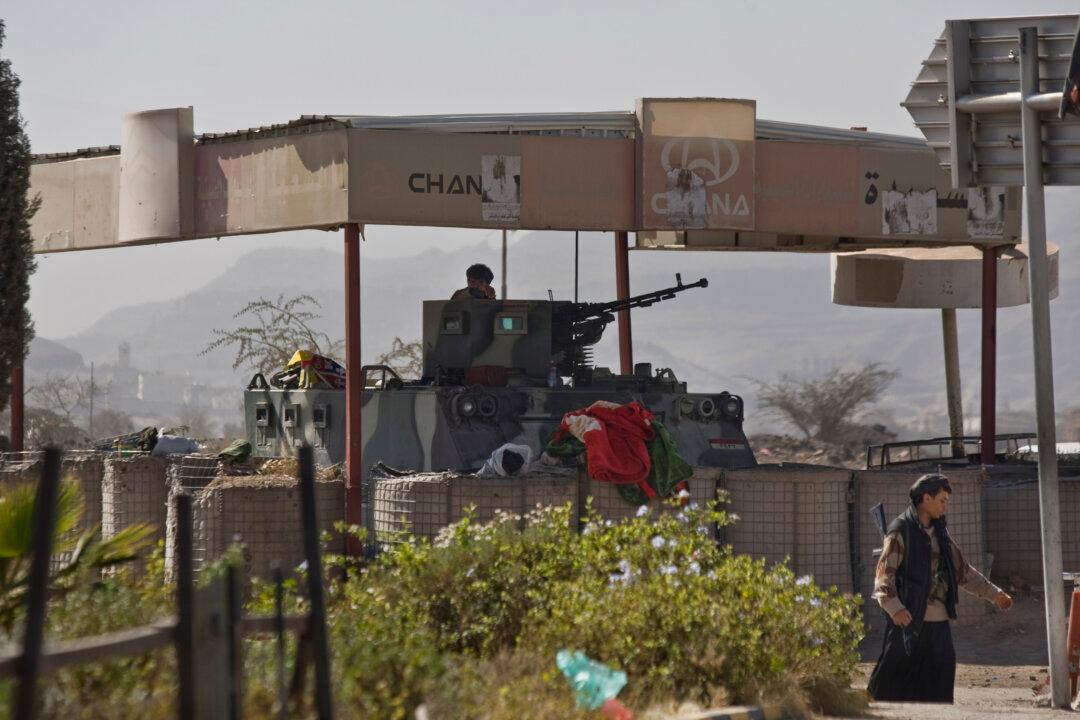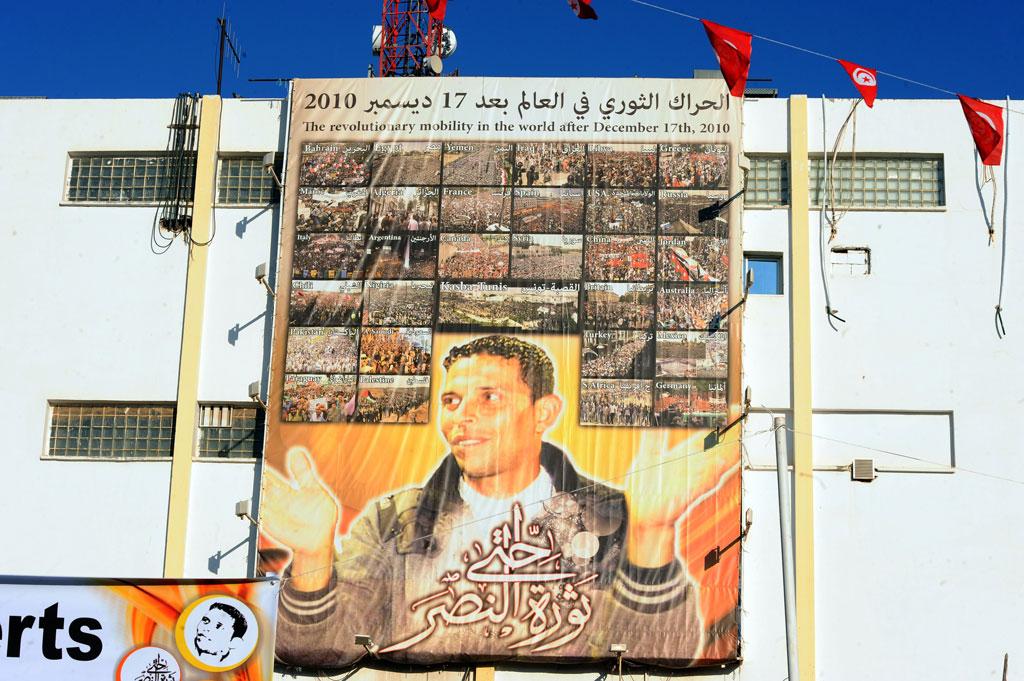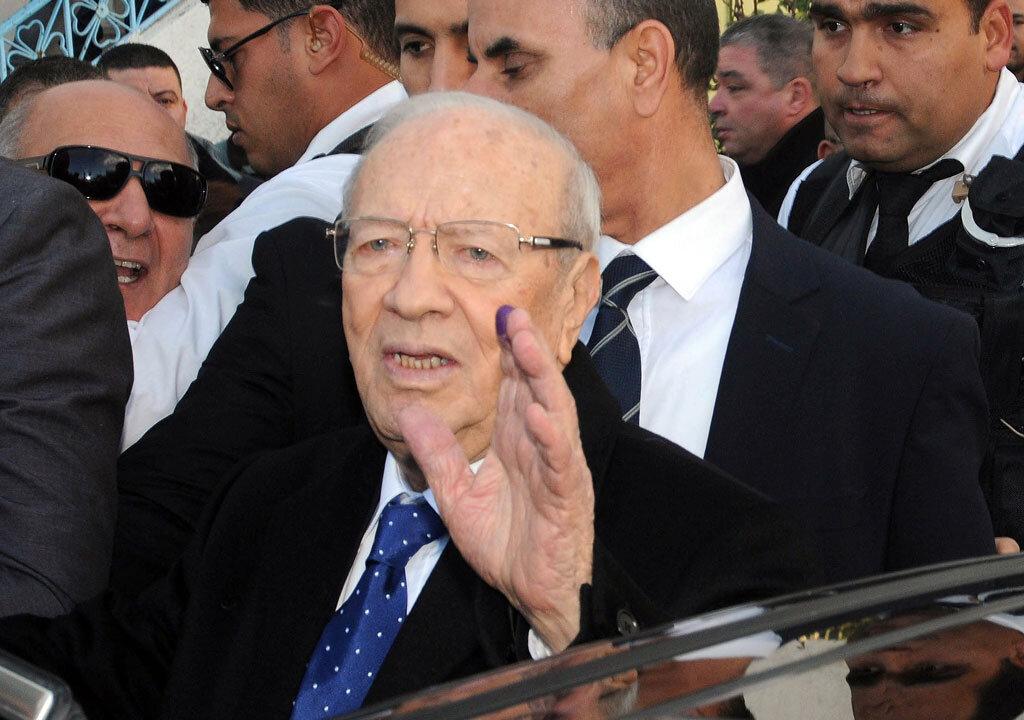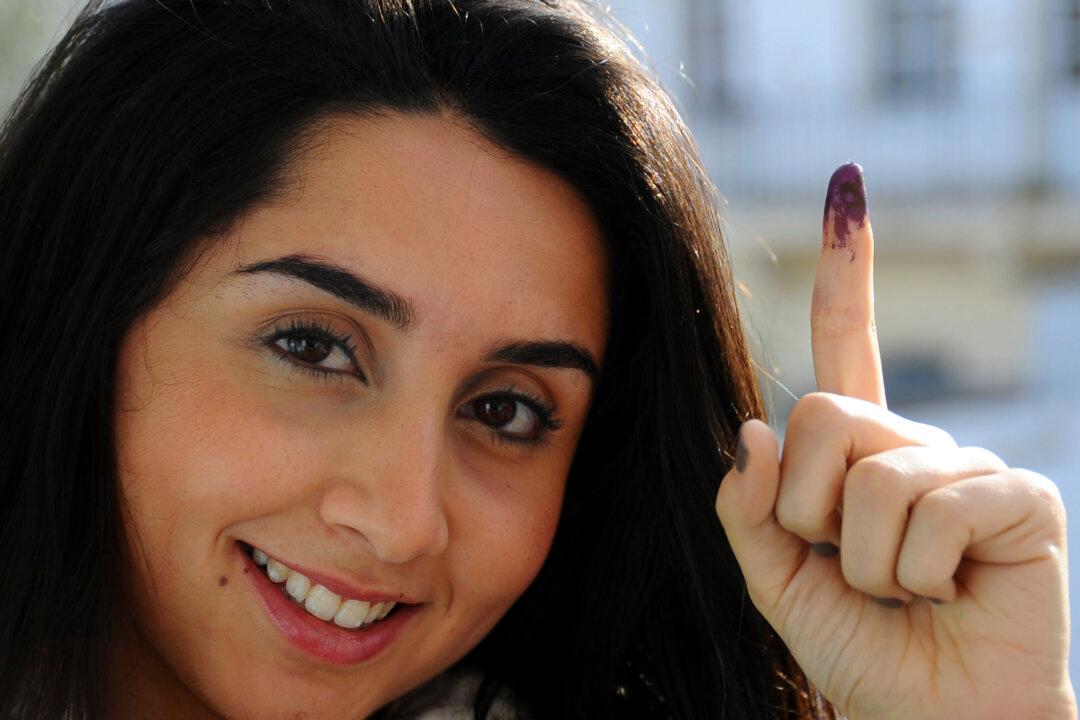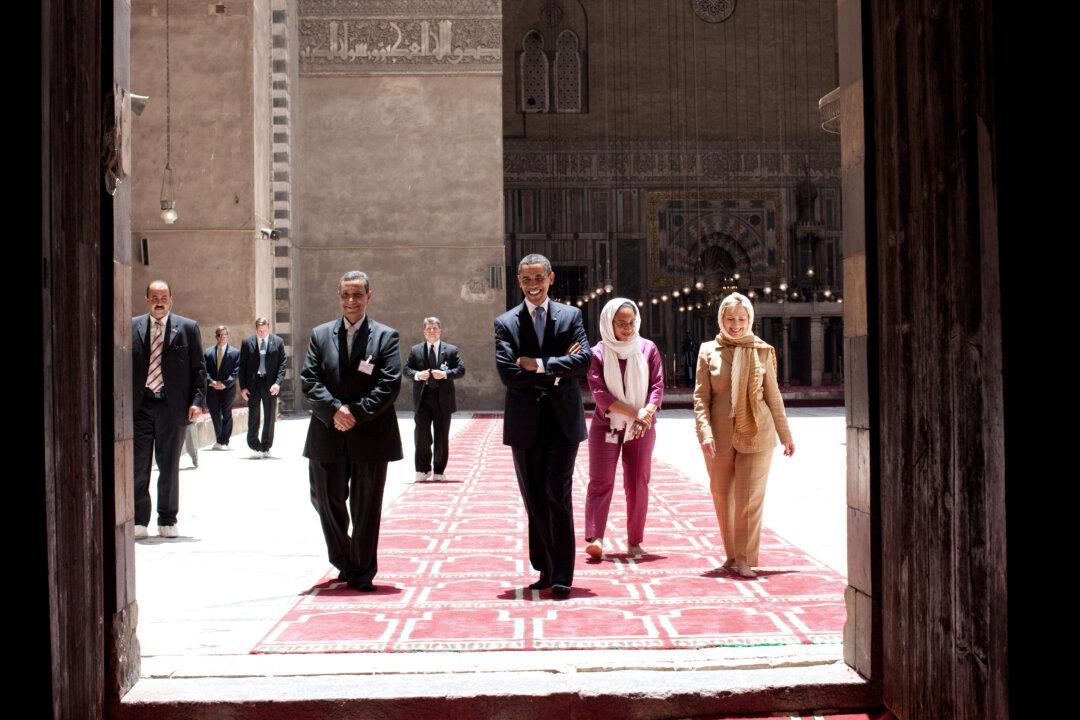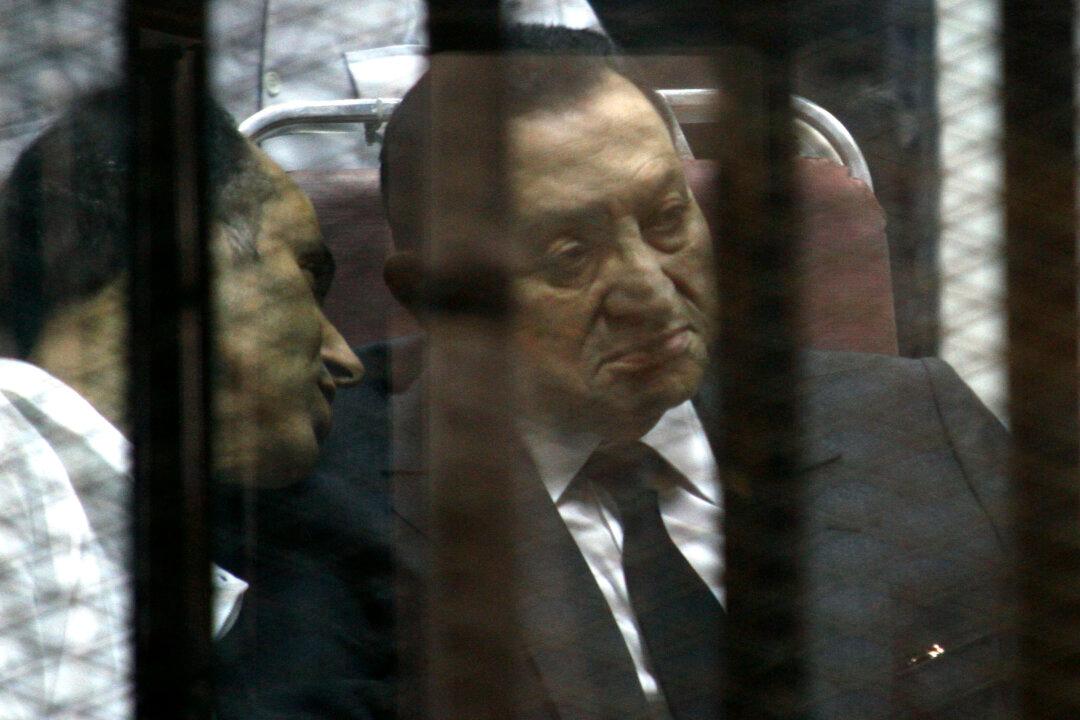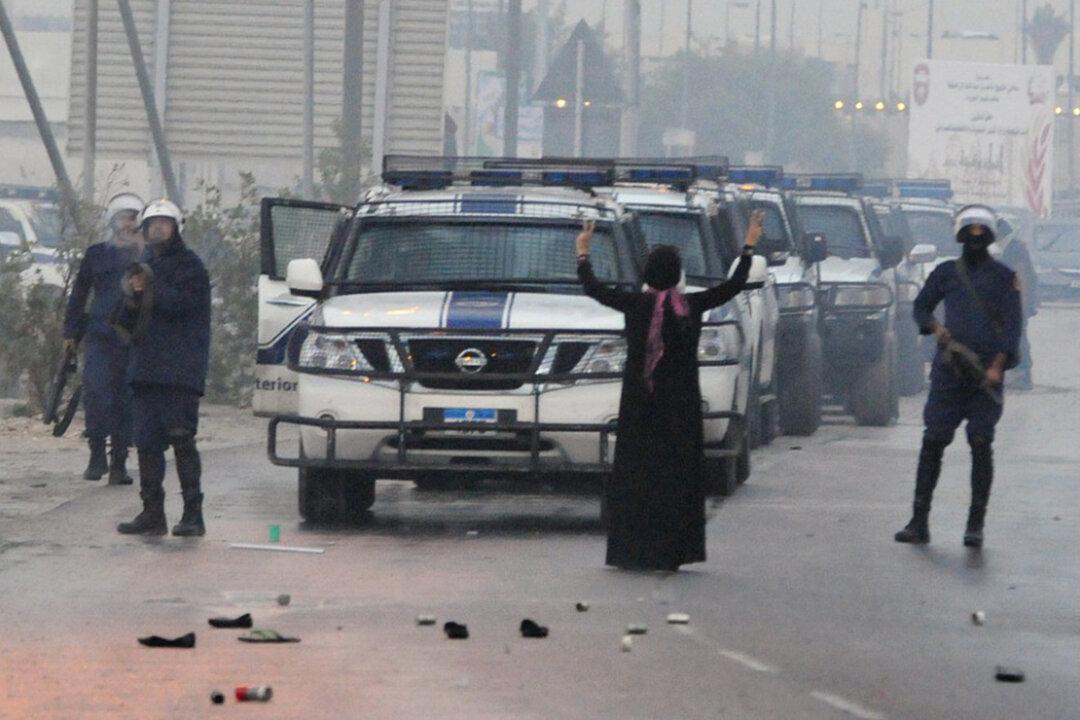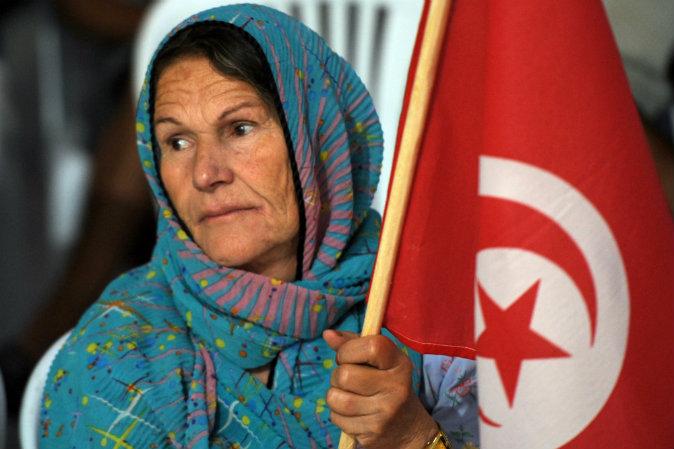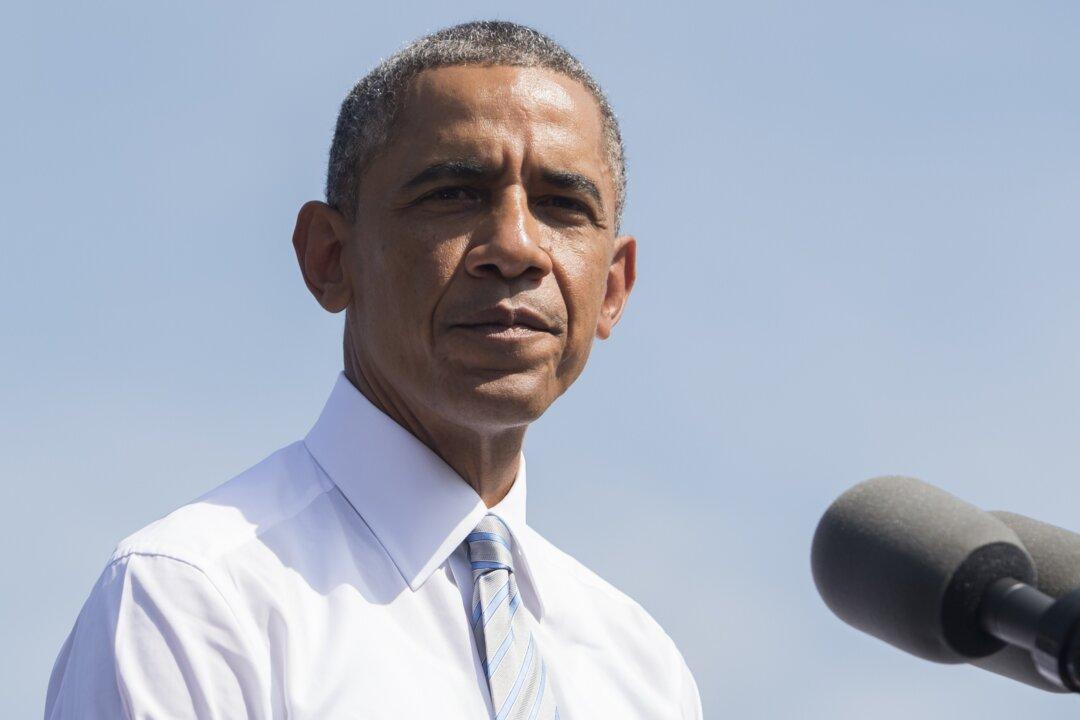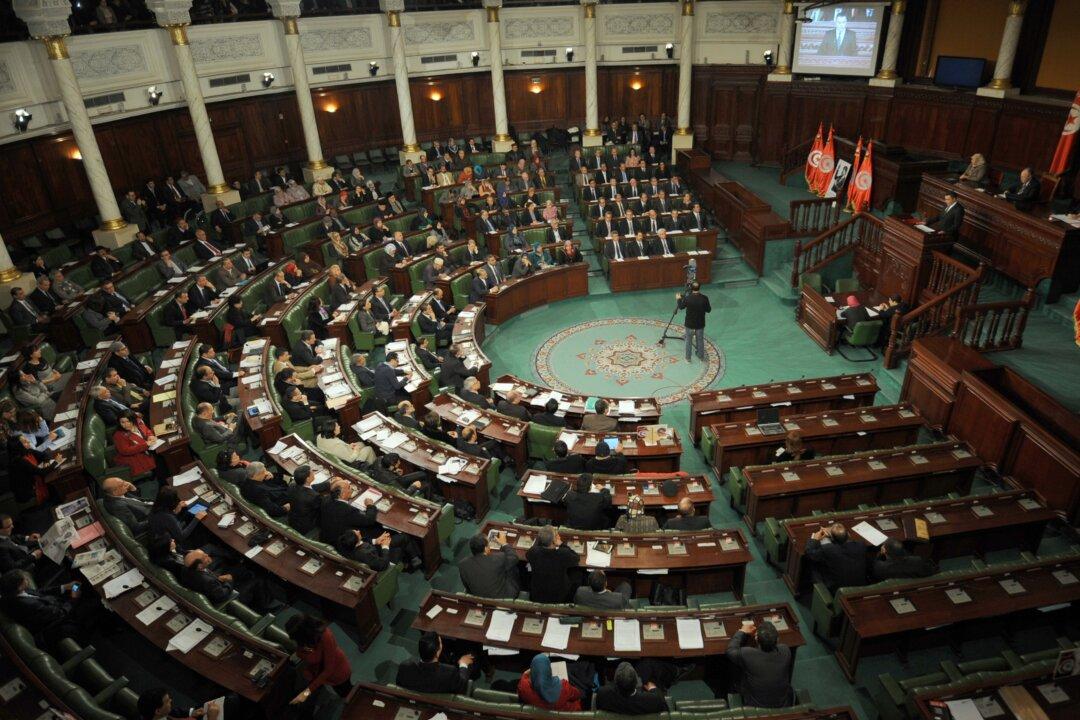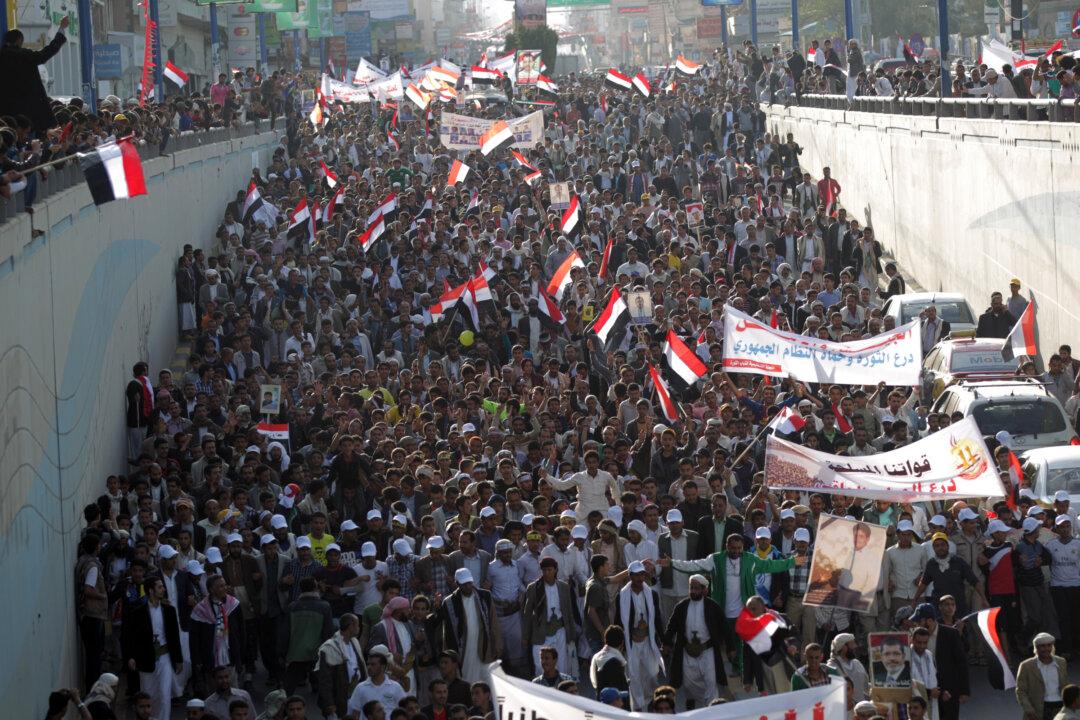Focus
Arab Spring
LATEST
Trump Issues Warning as Rebels Topple Syrian Regime | Live With Josh
The Arab Spring may be making a return. A rebel uprising in Syria has now officially toppled the Assad regime.
|
March of Arab Spring on Pause
The Arab Spring, a wave of protests sweeping through the Middle East in 2011, inspired hope for more freedoms in the region. Such anticipation was short-lived as authoritarian rulers recalibrated strategies for control by strengthening alliances with constituencies including elites, secular middle classes and workers who are wary of rapid changes that might threaten economic stability, explains Hicham Alaoui, the director of the non-profit Hicham Alaoui Foundation for Social Science Research. He delivered the annual Coca-Cola World Fund at Yale Lecture this year, and this essay is based on that lecture. He describes operational tactics employed by some governments: repression of opposition and extensive monitoring of public activities, exploitation of fear, selective enforcement of strict interpretations for Islam, and increased interventions throughout the region. “However, at the heart of retrenched authoritarianism rests a long-term gamble,” notes Alaoui, that “all else being equal, youth activists that comprise the vanguard of opposition movements can be permanently deactivated.” Societies with a high proportion of youth cannot ignore that driving force of change.
|
5 Years After Gadhafi’s Fall, Is Libya Any Closer to Political Stability?
After five years of violence and political instability, Libya may be on the verge of forming a stable government.
|
5 Years On, Tunisia’s Jasmine Revolution Continues From the Ground Up
Tunisians are marking five years since the culmination of their “Jasmine Revolution.”
|
Why Are the Gulf States so Reluctant to Take in Refugees?
A big question is reverberating in the minds of many; why have the Arab Gulf states not taken in any Syrian refugees?
|
Yemeni Rebels Seize US Embassy Vehicles in Sanaa, Thousands of Documents Burned
Yemen’s Houthi rebels seized the U.S. Embassy in Sanaa on Tuesday night, according to preliminary reports.
|
Cold Lessons From the Balmy Euphoria of the ‘Arab Spring’
A desperate Tunisian fruit and vegetable vendor immolated himself on Dec. 17, 2010, setting off a chain of demands for dignity and a better life. The past four years in the Arab world have seen vast turmoil, and the end is not yet clear.
|
Egypt and the Obama Administration
The meeting between U.S. President Barack Obama and Egyptian President Abdul-Fattah el-Sisi September 25, 2014 on the margins of the UN General Assembly in New York marked the first encounter between Obama and any Egyptian president since his meeting with Hosni Mubarak in the summer of 2010.
|
Hosni Mubarak Got Away With Murder, Activists Say—Egypt Court Drops Charges
A judge dismissed murder charges Saturday against former President Hosni Mubarak and acquitted his security chief over the killing of protesters during Egypt’s 2011 uprising, crushing any hope of a judicial reckoning on behalf of the hundreds victims of the revolt that toppled him.
|
Film Review: ‘We Are The Giant’
We Are The Giant documents the bravery of six activists challenging oppression in the Middle East that followed Tunisia’s Jasmine Revolution.
|
The Tunisian Elections: Toward an Arab Democratic Transition
Tunisia, the birthplace of the 2011 Arab uprisings, is on the cusp of a defining moment. The parliamentary election of October 26 is about pivoting toward democratization. Presidential elections will follow on November 23. The focus of this piece is on how the elections are likely to reshape Tunisia’s polity and society.
|
Obama’s Legacy in the Middle East: Passing the Baton in 2017
In a period of about six weeks spanning August and September 2014, President Obama dramatically revamped his Middle East policy to put degrading and destroying the Islamic State (ISIS) at its center.
|
Arab Spring Today: Cronyism and Green Shoots
Violence is once again flaring in the Middle East and the Arab Spring seems like a distant, wilted dream.
|
Arab Spring Wilts Under Continued Cronyism
Violence is once again flaring in the Middle East and the Arab Spring seems like a distant, wilted dream. But while the violence is grabbing the headlines, the real problem—lack of opportunity—is receiving little attention.
|
3 Ways the Arab Youth Is Still Reshaping the Middle East, North Africa
Three and a half years ago, the world was riveted by the massive crowds of youths mobilizing in Cairo’s Tahrir Square to demand an end to Egypt’s dreary police state.
|
Trump Issues Warning as Rebels Topple Syrian Regime | Live With Josh
The Arab Spring may be making a return. A rebel uprising in Syria has now officially toppled the Assad regime.
|
March of Arab Spring on Pause
The Arab Spring, a wave of protests sweeping through the Middle East in 2011, inspired hope for more freedoms in the region. Such anticipation was short-lived as authoritarian rulers recalibrated strategies for control by strengthening alliances with constituencies including elites, secular middle classes and workers who are wary of rapid changes that might threaten economic stability, explains Hicham Alaoui, the director of the non-profit Hicham Alaoui Foundation for Social Science Research. He delivered the annual Coca-Cola World Fund at Yale Lecture this year, and this essay is based on that lecture. He describes operational tactics employed by some governments: repression of opposition and extensive monitoring of public activities, exploitation of fear, selective enforcement of strict interpretations for Islam, and increased interventions throughout the region. “However, at the heart of retrenched authoritarianism rests a long-term gamble,” notes Alaoui, that “all else being equal, youth activists that comprise the vanguard of opposition movements can be permanently deactivated.” Societies with a high proportion of youth cannot ignore that driving force of change.
|
5 Years After Gadhafi’s Fall, Is Libya Any Closer to Political Stability?
After five years of violence and political instability, Libya may be on the verge of forming a stable government.
|
5 Years On, Tunisia’s Jasmine Revolution Continues From the Ground Up
Tunisians are marking five years since the culmination of their “Jasmine Revolution.”
|
Why Are the Gulf States so Reluctant to Take in Refugees?
A big question is reverberating in the minds of many; why have the Arab Gulf states not taken in any Syrian refugees?
|
Yemeni Rebels Seize US Embassy Vehicles in Sanaa, Thousands of Documents Burned
Yemen’s Houthi rebels seized the U.S. Embassy in Sanaa on Tuesday night, according to preliminary reports.
|
Cold Lessons From the Balmy Euphoria of the ‘Arab Spring’
A desperate Tunisian fruit and vegetable vendor immolated himself on Dec. 17, 2010, setting off a chain of demands for dignity and a better life. The past four years in the Arab world have seen vast turmoil, and the end is not yet clear.
|
Egypt and the Obama Administration
The meeting between U.S. President Barack Obama and Egyptian President Abdul-Fattah el-Sisi September 25, 2014 on the margins of the UN General Assembly in New York marked the first encounter between Obama and any Egyptian president since his meeting with Hosni Mubarak in the summer of 2010.
|
Hosni Mubarak Got Away With Murder, Activists Say—Egypt Court Drops Charges
A judge dismissed murder charges Saturday against former President Hosni Mubarak and acquitted his security chief over the killing of protesters during Egypt’s 2011 uprising, crushing any hope of a judicial reckoning on behalf of the hundreds victims of the revolt that toppled him.
|
Film Review: ‘We Are The Giant’
We Are The Giant documents the bravery of six activists challenging oppression in the Middle East that followed Tunisia’s Jasmine Revolution.
|
The Tunisian Elections: Toward an Arab Democratic Transition
Tunisia, the birthplace of the 2011 Arab uprisings, is on the cusp of a defining moment. The parliamentary election of October 26 is about pivoting toward democratization. Presidential elections will follow on November 23. The focus of this piece is on how the elections are likely to reshape Tunisia’s polity and society.
|
Obama’s Legacy in the Middle East: Passing the Baton in 2017
In a period of about six weeks spanning August and September 2014, President Obama dramatically revamped his Middle East policy to put degrading and destroying the Islamic State (ISIS) at its center.
|
Arab Spring Today: Cronyism and Green Shoots
Violence is once again flaring in the Middle East and the Arab Spring seems like a distant, wilted dream.
|
Arab Spring Wilts Under Continued Cronyism
Violence is once again flaring in the Middle East and the Arab Spring seems like a distant, wilted dream. But while the violence is grabbing the headlines, the real problem—lack of opportunity—is receiving little attention.
|
3 Ways the Arab Youth Is Still Reshaping the Middle East, North Africa
Three and a half years ago, the world was riveted by the massive crowds of youths mobilizing in Cairo’s Tahrir Square to demand an end to Egypt’s dreary police state.
|



